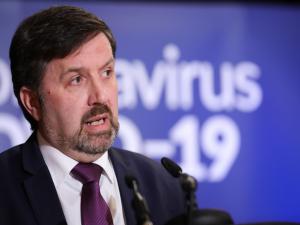
Q Radio News/PA
Mandatory vaccine passports are to be introduced in Northern Ireland after Stormont ministers backed the move despite DUP opposition.
The other four Executive parties backed a proposal from Health Minister Robin Swann that will see legal enforcement of Covid-19 certification entry requirements for nightclubs, bars, restaurants and a range of other settings from December 13.
Mr Swann is also now set to draw up a package of other measures to help increase compliance with current coronavirus rules and guidance and drive up vaccination rates.
While the four DUP ministers voted against the vaccine passport proposal, the party did not deploy a cross-community voting mechanism that could have blocked the introduction of certification in the region.
However, the DUP has called for a vote in the Assembly before the policy is introduced.
Mandatory vaccine passports are set to be introduced in Northern Ireland after the Executive voted - by a majority - to back a proposal from @RobinSwannMoH
— Q Radio News (@qnewsdesk) November 17, 2021
DUP ministers voted against the move but did not deploy a cross-community voting mechanism to block it. pic.twitter.com/VqrDTFpLRR
Previous Executive decisions on Covid-19 rules, including lockdowns, have been subject to retrospective votes in the chamber, usually weeks after the measures have been rolled out.
Under Mr Swann’s plan, people wishing to gain entry to designated venues would need to demonstrate evidence of Covid-19 vaccination, a negative lateral flow test result, or proof of a coronavirus infection within the previous six months.
Covid certification will be used to gain entry to nightclubs, hospitality premises that serve food and/or drink, cinemas, theatres and conferences halls.
It will also be needed to access indoor events with 500 or more attendees where some or all of the audience is not normally seated.
Certificates would be required for outdoor events with 4,000 or more attendees where some or all of the audience is not normally seated.
They would also be mandatory at all events of 10,000 or more attendees whether the audience is seated or not.
Mr Swann wants the regulations needed for the law change come into effect on November 29, with a 14-day grace period prior to becoming enforceable on December 13.
Non-compliant venues could be hit with a £1,000 fine.
The Health Minister said he was trying to avoid the need for more severe restrictions later in the winter.
“Our Covid numbers are too high and we need to forcibly push them down,” he said.
“Our health and social care system is under severe stress. We have to act.”
Mr Swann’s proposals come amid escalating pressures on the region’s beleaguered health system.
Covid-19 transmission rates have soared in recent weeks, particularly among young people.
A modelling paper from health officials presented to the Executive ahead of Wednesday’s meeting warned passports may not be enough to suppress rapidly increasing Covid case numbers, which have surged 23% in a week, and that “more severe restrictions” may need to be considered in mid-December to avoid hospitals being overwhelmed.
Hospitality Ulster hits out at Covid-19 passports being introduced here.
— Q Radio News (@qnewsdesk) November 17, 2021
"The decision sends a clear signal that we are of no value or concern...businesses will be the ones who must be the enforcers of the scheme, and it is our staff that will face the abuse."
In full: pic.twitter.com/FRf8fR8pS6
DUP First Minister Paul Givan criticised the policy as “divisive” and claimed it would have “marginal” impact on reducing transmission rates.
He said it would create a “two-tier” system whereby certification was required for certain private sector businesses but not for accessing public services.
Mr Givan, who declined to be drawn when asked why the DUP had not vetoed the move, said the Department of Health would be better served taking action to free up beds occupied by patients who would be cared for at home.
“Whenever we ask the questions around how effective would this policy be, it was marginal,” he said.
“There has been no assessment around the effectiveness.
“We look at the Republic of Ireland that has had this scheme in, and their rates of transmission are much higher than Northern Ireland.
“Their hospital pressures are higher than Northern Ireland and they have had this scheme in place.
“When we ask questions around the economic impact assessment, none had been carried out. No equality impact assessment, no assessment in terms of human rights legislation has been carried out.”
Some of Mr Givan’s colleagues were quick to criticise the Executive’s decision. Former economy minister Paul Frew vowed never to use a vaccine passport while MP Sammy Wilson said the proposal was developed by Mr Swann to “hide his own lack of planning” within the health system.
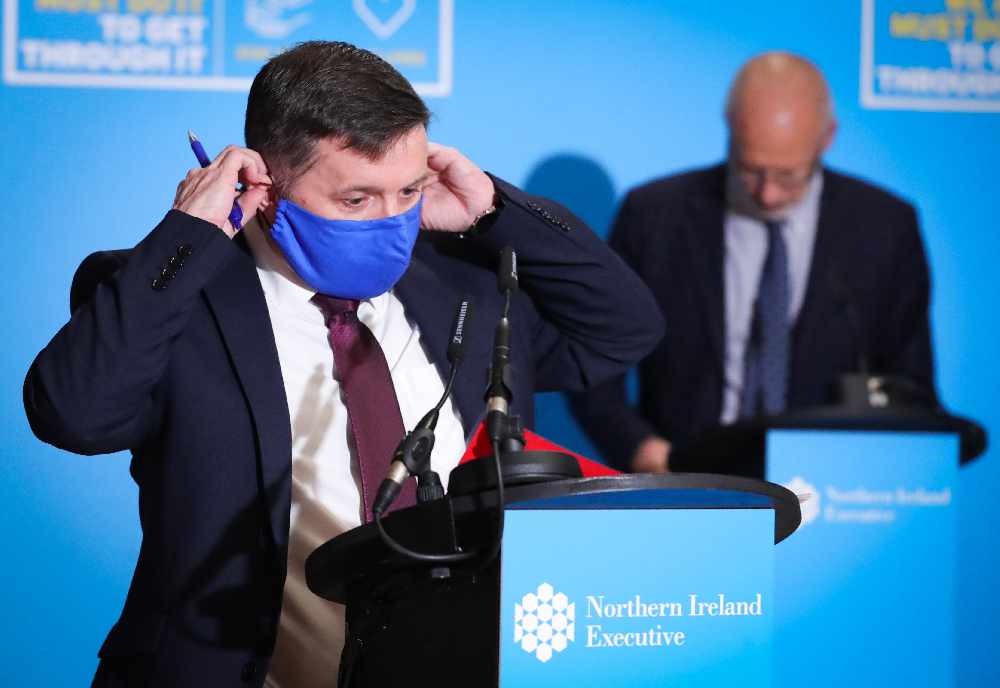
Health minister Robin Swann
Making certification a legal entry requirement for hospitality venues has been credited with driving up vaccination rates among young people in the Irish Republic.
Supporting the move north of the border, Sinn Fein minister Conor Murphy said: “We are in a position now where action taken now can prevent more serious action having to be taken in the future and we do want to be in a position where we do all we can to ensure that businesses can remain open and people can enjoy the build-up to Christmas, but do so in a way that is sensible and we do so in a way which recognises the virus is on the increase again and that measures have to be taken.”
SDLP minister Nichola Mallon, who has been calling for vaccine passports for two months, expressed frustration that it had taken so long.
She also criticised the DUP position and asked what alternative the party was proposing to tackle spiralling transmission rates.
“Finally, the Executive has taken that decision and we need to make sure that we accelerate the introduction and make sure that we use every tool that we have in the box to ensure that we minimise as much as possible the chances of any further restrictions later in December,” she said.
Ahead of the meeting, Alliance leader Naomi Long said: “I don’t want anyone to think that a Covid passporting scheme is a silver bullet to that wider problem.
“Each of us needs to take personal responsibility for ensuring that insofar as possible we reduce our amount of social contact, try to keep social distancing in place and wear our masks and comply with all other regulations.
“We are not going to get to this point with only Covid passports, but they could make a valuable contribution in protecting people in high-risk environments from ending up in ICU.”
The deaths of a further 12 patients who had previously tested positive for Covid-19 in Northern Ireland were reported on Wednesday along with another 1,848 positive cases of the virus.
On Wednesday morning there were 427 Covid-positive patients in hospital, with 33 in intensive care.


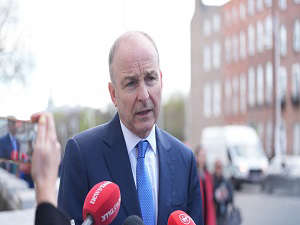 Taoiseach urges gardai and others to testify at Omagh bomb inquiry if asked
Taoiseach urges gardai and others to testify at Omagh bomb inquiry if asked
 James and Grace return as most popular baby names in Northern Ireland
James and Grace return as most popular baby names in Northern Ireland
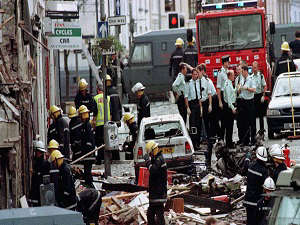 Omagh Bombing Inquiry reaches agreement with Irish Government over co-operation
Omagh Bombing Inquiry reaches agreement with Irish Government over co-operation
 Rory McIlroy’s career grand slam celebrated with Royal Mail postmark
Rory McIlroy’s career grand slam celebrated with Royal Mail postmark
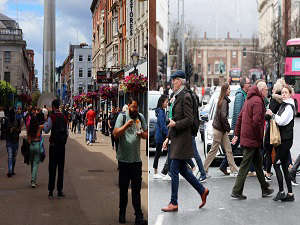 Economic and well-being gaps between Republic and Northern Ireland ‘widening’
Economic and well-being gaps between Republic and Northern Ireland ‘widening’